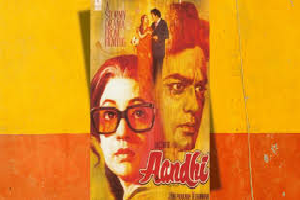22

Anwarul Haq Baig
New Delhi | Thursday | 22 August 2024
Prime Minister Narendra Modi’s proposal for a "secular civil code" during his Independence Day address has sparked widespread criticism from political, religious, and civil society leaders. This new terminology, intended to replace what he called the existing “communal civil code,” has raised concerns about the true intentions behind the government's agenda. Many have questioned whether this shift is genuinely aimed at promoting secularism or merely a politically motivated strategy ahead of the upcoming state elections.
One of the significant criticisms is the linguistic change from "uniform civil code" (UCC) to "secular civil code." Many see this as a deliberate move to rebrand the contentious issue, which has long faced opposition from religious and social groups, including Muslims, tribal communities, and Sikhs. Critics argue that despite the word "secular," the core intentions of the government remain unchanged. Veteran journalist Prof. Pradeep Mathur expressed scepticism, stating, "Their use of language is intended to mislead. Despite using the term ‘secular,’ their fundamental sectarian mindset persists." Civil rights activist Dr Ram Punyani echoed these sentiments, noting that this shift is an attempt to repackage the UCC under a different name while the opposition to such a law remains strong.
Critics argue that the government's intentions remain unchanged, and that the term "secular" is being used to mislead. They warn that imposing a uniform or secular civil code could undermine India's pluralistic society and threaten its federal structure.
Opposition leaders, legal experts, and religious groups have spoken out against the proposal, urging the government to focus on more pressing national issues and uphold the constitutional principles of diversity and religious freedom.
Several political figures have also spoken out against the Prime Minister's remarks, raising concerns about its potential impact on the social fabric of the nation. Prominent lawyer and Congress leader Kapil Sibal pointed out that India needs to focus on becoming a "secular and civil" country, and questioned whether the government truly embraces secularism in its actions. Sibal criticized the Prime Minister for his controversial speeches in the past, mentioning his divisive rhetoric on issues like "shaman-Karastan" and "love jihad." He emphasized that secularism should not just be a term used in speeches but should be reflected in the government’s policies and behaviour.
Dr SQR Ilyas, the spokesperson for the All India Muslim Personal Law Board (AIMPLB), voiced strong objections, stating that a uniform or secular civil code is unacceptable to Muslims who are deeply connected to Sharia Law. He described the Prime Minister’s proposal as "a well-thought-out conspiracy" and highlighted the constitutional protections for religious practices, arguing that calling religious personal laws communal is both offensive and misleading. Dr. Ilyas also emphasized that the Shariat Application Act of 1937 is recognized by the Indian Constitution under Article 25, which protects the right to practice and propagate religion. He warned that the secular civil code is a serious threat to these constitutional rights.
Other critics, including political leaders from regional and national parties, voiced their opposition to Modi's proposal. Samajwadi Party leader Akhilesh Yadav stressed that the government should prioritize more pressing issues like inflation, unemployment, and the welfare of the youth rather than pursuing divisive agendas. Congress leader Jairam Ramesh accused the Prime Minister of distorting history and insulting the legacy of Dr. B.R. Ambedkar, who was instrumental in reforming Hindu personal laws. Ramesh also pointed out that the 21st Law Commission, appointed by Modi himself, had stated in 2018 that a uniform civil code was "neither necessary nor desirable at this stage."
Legal scholars have also raised concerns about the constitutional implications of the secular civil code. While the Directive Principles of State Policy mention a UCC, these principles are not enforceable by courts and cannot override fundamental rights. Dr. Ilyas reiterated this point, emphasizing that the UCC mentioned in the Directive Principles is a mere directive and not mandatory, and it cannot supersede the fundamental rights enshrined in the Constitution. The fear is that imposing a uniform or secular civil code could undermine India’s pluralistic society and threaten its federal structure.
In conclusion, while Prime Minister Modi’s call for a secular civil code may be presented as a step towards secularism, critics remain unconvinced. The opposition, religious leaders, and legal experts argue that the government’s true intentions are to push a sectarian agenda, potentially causing further divisions in the country. They urge the government to focus on more pressing national issues and uphold the constitutional principles of diversity and religious freedom.
---------------





















































































































































































































































































































































































































































































































































































































































































































































































































































































































































































































































































































































































































































































































































































































































































































































































































































































